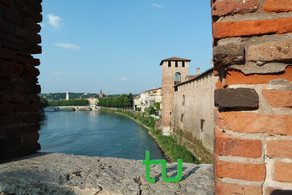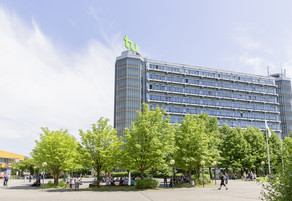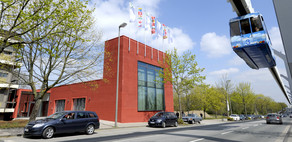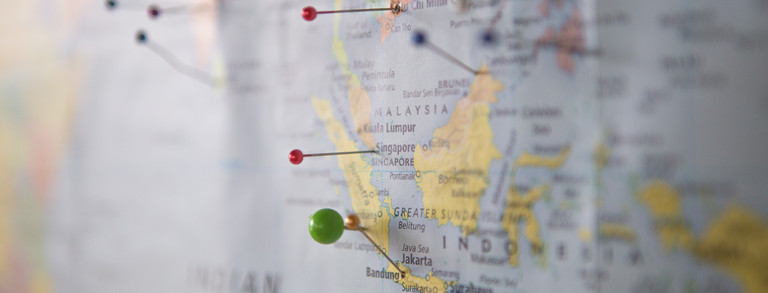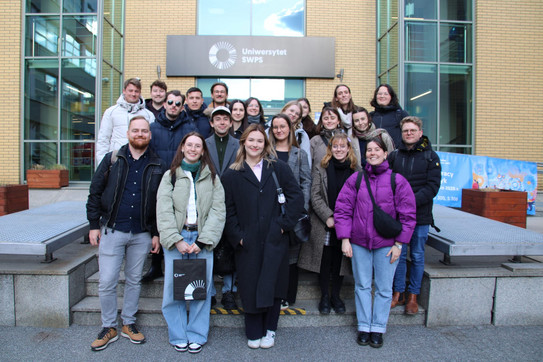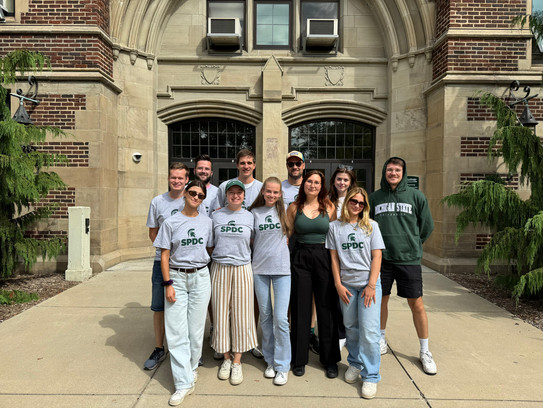PROMOS Study Trip
The DAAD started the PROMOS program with funds from the BMBF, for which German universities can apply through the DAAD. This provides TU Dortmund University with funds for student stays abroad but also includes funding for study trips abroad, which can be applied for under the direction of a professor via the International Office.
TU Dortmund University Study Trip Abroad
Professors at TU Dortmund University can submit an application for funding by October 31, 2025 for the calendar year 2026.
Due to the tight budget in 2026, there can only be one application deadline.
In the hope of a better PROMOS grant amount for 2027, two application deadlines can then be offered again:
October 31, 2026 (for the 1st half of the following year 2027) and April 30, 2027 (for the 2nd half of 2027)
Duration
- The study trip may not exceed 12 days.
Participants
- Degree-seeking students of TU Dortmund University and one accompanying person (e.g. lecturer, research assistant, professor of TU Dortmund University)
Nationality of students
- German nationality or
- Equal to Germans according to § 8 paragraph 1 number 2 ff., paragraph 2, 2a and 3 BAföG or
- Non-Germans who are enrolled in a course of study at TU Dortmund University with the aim of obtaining a degree or doctorate at TU Dortmund University. For non-German citizens, stays in their home country are excluded. The home country is considered to be the country in which the student has been predominantly residing for at least five years.
Content of the study trip
In addition to imparting subject-related knowledge and insights into the host country, the focus must be on meeting foreign students and scientists on site. Travel with a predominantly touristic program cannot be funded.
Important information
Funding for mandatory excursions and measures already carried out as well as for lecture or congress trips and conference trips is excluded.
Applicants are obliged to notify us immediately in writing if further funding for the same purpose is applied for or approved by other public bodies or if further funding is promised by third parties. If the trip is financed by various donors, a detailed cost breakdown is required.
The grant may not be used to finance expenses that are financed from other funds (prohibition of double funding).
All trips in the current year must be completed by 15 December.
The lump sum is 45 EUR per person and day for trips to all countries. According to the DAAD guidelines, the grant is only to be used for accommodation and travel expenses.
The selection committee may also decide to only partially fund a PROMOS study trip.
Persons with a degree of disability (GdB) of at least 50 or a chronic illness who are taking part in a study trip abroad as part of project funding can get in touch with the International Office for additional funding. The International Office can submit a grant application via the DAAD portal at least two months before the start of the planned mobility. A maximum of 10,000 euros can be granted as a grant to cover additional expenses during the mobility (including expenses for a possible accompanying person).
All information on applying for special funds for additional expenses for mobility with disabilities can be found on the PROMOS website - application documents and further information.
- Application for funding for a study trip abroad for TU Dortmund University students (in German) (includes the financial plan and the list of participants (if necessary with N.N.)
- Detailed description of the program (justification of the planned study trip, description of the preparation and follow-up of the trip, e.g. through special courses)
- Proof of the agreement with the host partner university or institution regarding the visit of the group of participants (cooperation agreement; correspondence; letter of invitation)
- Preliminary program
The selection is made by a committee representing a cross-section of the departments of TU Dortmund University. These are selected members of the focus departments and the TU Dortmund project team. If more than two applications are submitted from one department, the International Office may ask the Dean's Office of the respective department to provide a ranking.
Selection criteria for the internal university selection are
- Transfer of specialist knowledge
- Regional historical insights
- Meeting foreign students and scientists on site
- Funding history
Please apply for funding early enough to facilitate your planning. Please note that the decision of the selection committee can take up to two months, so that you can expect a reply by Mid-June/end of December.
A1 Certificate | Certificate of Secondment
If an application has been approved, it is important to know that TU Dortmund University must apply for an A1 Certificate (for travel within the EU) and a Secondment Certificate (for travel outside the EU) for the person accompanying the student group. If you are that person, you can carry it with you during your stay abroad or show it later if you are asked for it during your trip. The certificate is automatically requested from the health insurance company by Department 3.2 with your SAP business trip application.
Travel safety
The decision to travel to risk areas lies with you and TU Dortmund University, taking into account the regulations of the PROMOS program, the institution's internal strategies and the respective crisis management. This also means that you must inform yourself about the current situation in the host country on the website of the Federal Foreign Office and consult with the International Office before you begin your stay abroad.
Concert Trips
Applications may be sent directly to the DAAD:
Testimonials
Department of Culture Studies, Institute for Journalism - Poland
14 students from the Institute of Journalism - seen here with students from the partner university SWPS in Warsaw - were on a study trip to Poland in April, funded by the DAAD's PROMOS program. “Departure, defense, return - migration in the context of geopolitical challenges on the EU's eastern border” was the theme of the excursion to Germany's neighboring country. In addition to seminars, workshops and meetings with NGOs and experts on the seminar topic in Warsaw, the students also visited the Polish-Belarusian border region for a few days to gain their own impression of the situation on the EU's external border.
The first five days were spent exploring the metropolis on Lake Michigan, Chicago, focusing on topics such as urban structure, climate adaptation, social inequality and retail. They then traveled by train to East Lansing, the location of MSU. In addition to the final three-day workshop with American students and lecturers, the group was able to experience other special features of the region up close on day trips to Detroit (a city undergoing structural change) and the Sleeping Bear Dunes nature reserve (nature conservation in the USA).
A college football game, a campus tour and visits to the dining halls (all-you-care-to-eat) rounded off the insight into American university life.
The multifaceted program and the diverse immersion in numerous areas of life, learning and nature in the USA are likely to leave a long-lasting impression on the participants.






